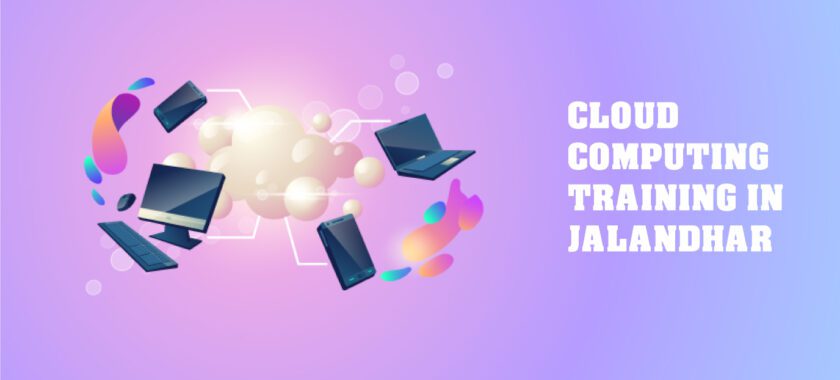
Cisco Networking Academy Certification CISCO NETWORK ACADEMY: INTRODUCTION On January 1, 2004, Daffodil International University (DIU) received authorization to function in Bangladesh as the Cisco Networking Academy Certification. DIU gives courses for specialists and college students to put together for the hastily expanding worldwide network necessities of the twenty-first century, considering Bangladesh and the global context. The IT industry’s increase has pressured people to turn out to be well-versed in new generation and keep technical integrity. CISCO NETWORK ACADEMY: HISTORY The Cisco Networking Academy software, launched in 1997 across seven US states, concerns 64 instructional establishments. BUET, initiated in Bangladesh in 2001, now operates a regional academy and nine local academies in the country with UNDP aid. The application’s worldwide significance grew, leading to extra training centers. CISCO NETWORK ACADEMY: PURPOSE Cisco created the CCNA Program to generate ready graduates able to meeting the increasing desires of pc networking and its applications, both domestically and the world over. CISCO NETWORKING ACADEMY CERTIFICATION: Are you prepared to advance inside the extensive subject of community era? The esteemed Cisco Networking Academy certification is the most effective one to keep in mind. In the linked international of nowadays, where digitalization is king, having a network certification from Cisco Networking Academy can open up doors to opportunities you never could have imagined. Why do you maintain choosing to become certified by means of the Cisco Networking Academy? Cisco Networking Academy’s willpower to excellence in networking equips college students with comprehensive education, validation, and realistic labs. The academy simulates actual-global situations, providing cutting-edge sources, informed teachers, and realistic labs for fulfillment inside the evolving business enterprise. Furthermore, there may be no assessment to the credibility and reputation that incorporates incomes a Cisco Networking Academy certification. Having Cisco Networking Academy certifications can open doorways to loads of profession paths. CISCO CERTIFICATIONS: The list of certifications that Cisco Systems offers is known as Cisco Certifications. Associate (CCNA/CCDA), Professional (CCNP/CCDP), Expert are the four to five certification levels (course to community designers). Additionally, there are 9 wonderful paths for each technical subject: Routing & Switching, Design, Industrial Network, Network Security, Service Provider Operations, Storage Networking, Voice, Datacenter, and Wireless. Numerous specialised technicians, salespeople, business professionals, information middle certified teachers, and CAI (Cisco Academy Instructor) licensed teachers also are present. CCNP (CISCO CERTIFIED NETWORK PROFESSIONAL): Cisco Networking Academy offers a CCNP certification program for community specialists, demonstrating competencies for complex network design, implementation, and troubleshooting. The program covers network security, superior routing and switching, and troubleshooting, opening doorways to lucrative career possibilities and global recognition in networking. One of the pinnacle schools in the Jalandhar region is O7 Services, which affords an extensive CCNP (Cisco Certified Network Professional) program designed for newbies and beginners. Reputably identified as an ISO 9001:2015 licensed virtual advertising and marketing schooling provider, O7 Services is also an IBM Certified, Microsoft Accredited, and Google Partner. CCNA (CISCO CERTIFIED NETWORK ASSOCIATE): The Cisco Networking Academy gives an entry-stage CCNA (Cisco Certified Network Associate) certification software to individuals who want to start a profession in networking. As a precious credential for aspiring network experts, the CCNA certification validates essential networking competencies and know-how. The CCNA certification offers a strong foundation for destiny profession advancement in networking by way of demonstrating an individual’s talent in essential community configurations, troubleshooting, and protection concepts. Our CCNA direction at O7 Services. CONCLUSION: Overall, Cisco Networking Academy certification is paramount on this generation driven epoch. It is more than just a certification; it is proof of your proficiency, expertise, and commitment to networking excellence. So with a Cisco Networking Academy certification, you can bounce to new heights, and why settle for mediocrity? With Cisco Networking Academy, begin your journey closer to community mastery and take the first step towards a higher destiny right now.

Best Computer Networking Course & Certifications The best computer Networking Course In the current technological age computers have become an essential part of the business world and are essential to the field of business. With the advancement of technology as technology improved, organizations became more crucial. We’ve slowly transitioned from a cable network breakthrough to a remote management technology. If we look today, we will realize that systems management impacts everything. How Computer Networking Works Computer networks are a collection of interconnected devices which can transfer business and financial information to one another. A company’s devices may be connected via wires, or remotely via the radio wave or an infrared transmitting. The devices use a set of instructions and select the so-called conventions used to send information via wires or other media. The main reason for computers is the ability for gadgets to communicate with one another and share assets, which include records, data, apps and other equipment such as scanners or printers. Email, virtual collaboration, video conferencing, document sharing web gaming, and internet access are the most likely uses for organizations that run PCs. Networking is now a crucial component of any communication framework. Understanding how the network functions allows you to comprehend why this is needed. The network operation of computers: Here’s a brief description of how computers work: * Cables connect devices remotely via Wi-Fi or any other remote technologies. * Gadgets have IP addresses assigned that allow them to be seen in the company. Every business gadget has an IP address unique to the gadget. * Information is split into smaller units, called bundles, and then sent to the destination device like the hardware transmits the data across the company. The information bundles will be directed to their final destination with different equipment, like hubs and switches, when navigating an organizational structure. Shared resources clients can make use of resources like printers, information, or access to the internet more effectively. Need for Computer Networks Computer networks are crucial nowadays because they allow communication and sharing of resources between various devices and individuals. This is an overview of how we can do with computer networks, the benefits we get from computers, and things that have become feasible or even real due to networking. Let’s consider the significance to the computer network: Computer networks facilitate sharing resources such as documents, printers, and applications for devices and users. This means that the cost of resources is reduced and efficiency is improved. Excellent communication capabilities. Anywhere they may be connected, users can use computers. * Get information. Networks give access to various information and services including the internet, databases servers, and cloud-based computing services. Information is now available to be accessed and shared across the world. • High-security – networks permit to deploy security measures such as firewalls, access control, and encrypted connections to secure sensitive information from unauthorised access and other security risks. * Collaboration – No matter their geographical locations, networks enable organizations and individuals working together on the same task to work together. This encourages creativity, boosts output, and fosters collaboration. Networks provide central administration of applications, resources and data.
— Corporate Training Program 6 Weeks Industrial Training in Jalandhar We are providing best 6 weeks industrial training in jalandhar. Our trainers are having more than 15 years of experience. Our students are well placed in various companies. We also provide 3 months/6 Weeks Summer industrial training to B.Tech (all branches), Polytechnic Diploma, IT/MCA/BCA/DCA, and MBA students. Our Commitment to Your Success: 6 weeks industrial training is a vital period for students to gain knowledge about the field in which they want to make their career. It’s important for them to take this period seriously as it will help them in getting the right job. Industrial Training helps students in gaining knowledge about the technical and logical working of the chosen field. They get an overview of the real world industry scenario and how things work in the company. They learn to apply the theoretical concepts they learned in their degree course to the workplace. For any queries regarding registration or training, you may contact at: +91-84373-65007, 0181-5015007 There are many reasons why you should consider joining an Industrial Training Course. The following are some of them: Practical Knowledge This course provides you with practical skills that are essential for you to learn and understand any subject in depth. Usually, when a person reads a text, only words create a visualization. However, in the case of industrial training, you will be able to see, touch, and feel how things are done. In this six weeks training, you will get the opportunity to apply your theoretical knowledge in a real-world context. This is why it is so important to acquire the right training for you. One of the primary reasons why industrial training is so important is that it gives you an understanding of the industry environment. In addition, it will also help you decide what you want to do with your life. There are many advantages to taking a 6 weeks industrial training course. For starters, you will learn new technologies that are booming the market. You will be able to learn about the latest trends in technology. You will have a chance to work on live projects and get job placement support. Here are some steps you can take to find and make the most of a 6-weeks industrial training opportunity: 1. Identify your field of interest: Determine the industry or field you want to gain experience in. This could be related to your academic studies or a field you wish to explore further. 2. Research organizations and companies: Look for organizations, companies, or institutes that offer industrial training programs in your chosen field. You can search online, check job portals, contact local companies, or get recommendations from your academic institution. 3. Check eligibility requirements: Review the eligibility criteria for the industrial training programs you’re interested in. Some programs may require specific academic qualifications or prerequisites. 4. Prepare your application: Once you’ve identified a few suitable programs, prepare your application materials. This typically includes a cover letter, resume or CV, and any additional documents or certificates they may require. 5. Submit your application: Send your application to the organizations offering the industrial training programs. Follow their application instructions carefully and meet the deadlines. 6. Prepare for interviews: If your application is shortlisted, you may be called for an interview. Research common interview questions and prepare your responses. Be ready to highlight your skills, knowledge, and enthusiasm for the field. 7. Make the most of the training period: Once you secure a position in an industrial training program, treat it as a valuable opportunity to learn and gain practical experience. Be punctual, attentive, and proactive during your training. Ask questions, seek guidance from experienced professionals, and take on tasks with enthusiasm. 8. Network and build connections: Use this training period to build your professional network. Interact with colleagues, supervisors, and industry professionals. Attend any workshops, seminars, or events that may be organized during your training. Networking can be valuable for future job opportunities or references. 9. Learn from the experience: Reflect on your training experience and identify areas where you have grown and skills you have acquired. Take note of any challenges you faced and how you overcame them. This reflection will help you articulate your experience during future job interviews.

Best Computer Institute in Jalandhar O7 Services is the best computer institute in Jalandhar, offering top-notch training in various computer courses. With a team of experienced trainers, the institute provides state-of-the-art infrastructure and modern teaching techniques. O7 Services, with 15 years of experience and ISO 9001 certification, offers courses in programming, web development, graphic design, and other computer-related fields since 2000. Top Computer Education Institute in Jalandhar The top computer education institute in Jalandhar can prepare you for a variety of job options. Take classes on network administration, website building, computer science, software design, and database operations in addition to programming languages. The Best Computer Institute in Jalandhar for IT Professionals Are you considering a computer course in Jalandhar? These skills are invaluable regardless of the focus, like account management or surveys. However, before enrolling, evaluate options wisely. Top institutions in Jalandhar offer IT training centers and software learning academies with passionate instructors dedicated to your success. Best Computer Training Institute in Jalandhar For anyone interested in taking computer classes, O7 Services Computer Education Institute is the best computer institute in Jalandhar. providing exceptional education for both rural and urban areas of the nation at incredibly affordable prices. Because of its increasing renown, this institute has rapidly expanded both domestically and internationally. This institution is unique because it is ISO 9001:2015-recognised and has complete government authorization. Best Computer Training Institute in Jalandhar for IT Professionals To get the highest scores on the test, choosing a PTE preparation program is essential. A similar PTE Center with a strong educational program is offered centreowledge Icon in Punjab, which may assist you in easily passing this test. The importance of computer-related courses In today’s digital age, computer courses and classes play an essential role. Computer courses provide students the know-how to properly traverse this digital world, giving them a competitive advantage when they enter any industry or employment mark entrepreneurs, or students. Computer courses are an essential requirement for professionals, business owners, and students who want to further their careers and maintain their competitiveness. What is a Computer Basic Course Computer courses provide fundamental classes designed to introduce novice computer users to the basics. These classes help individuals better understand computers, basic software applications and operations. What kinds of Computer Courses in Jalandhar Near Bus Stand Explore an array of comprehensive computer courses in Jalandhar near the bus stand, catering to IT expertise, computer science, and digital literacy. Our curriculum spans programming, web development, data science, networking, cybersecurity, database operations, AI, machine learning, mobile app development, graphic design, and IT project management training, ensuring a well-rounded skill set for students. 6 Months of Computer Training Our six-month computer training course is designed to give students all the knowledge and abilities needed to succeed in the field of computers. You’ll acquire proficient in a variety of programming languages, software, and data processing methods, data analysis, and more advanced subjects like network security analysis. 6-Month Computer Diploma Certificate: Take this chance to improve yourself both now and in the future! Enrol in our 6-month Diploma Certificate computer training to enhance your skills with digital instruments and unlock a world of possibility. Don’t miss this opportunity to grow in your job! Enrol now to start your journey towards becoming a tech expert.

Best Computer Networking Training in Jalandhar Best Computer Networking Training in Jalandhar. Computer networking is an essential skill in today’s digitally-connected world. It can lead to many exciting career options. Computer networking is a skill that can be useful to anyone, whether you are a student or working professional. It will also help you keep up with the constantly changing technology landscape. Computer networking training institute is becoming increasingly popular in Jalandhar. Learning the basics of networking will not only improve your technical skills, but also help you build strong relationships with other professionals. We’ll examine the benefits of best networking training in Jalandhar, and how you can achieve your professional and personal goals. Read on to learn how computer networking can help you advance your career, or stay in the loop. The importance of computer networking training Computer networking is the backbone of modern technology, connecting people, devices, and data across the globe. From email to social media, from e-commerce to online banking, almost every aspect of our daily lives depends on computer networks. That’s why it’s critical to have a strong understanding of networking concepts and protocols, such as TCP/IP, DNS, DHCP, and VPN, to name a few. By mastering these fundamentals, you can troubleshoot network issues, optimize network performance, and design secure and scalable networks that meet the needs of your organization or clients. Moreover, computer networking training can help you develop valuable soft skills, such as communication, collaboration, and problem-solving, which are essential for success in any field. Computer networking training can offer a variety of benefits to help you achieve your goals and advance in your career. Here are the top benefits of investing in computer network training: 1. Better Career Prospects According to the U.S. Bureau of Labor Statistics, computer networking is among the fastest-growing IT fields, with an estimated growth rate of 6 percent from 2019 to 2029. The demand for network engineers, architects, administrators, security specialists, who can design and deploy complex networks, in various sectors such as government, healthcare, finance and education, is driving this growth. You can become a highly-sought professional by acquiring the necessary skills and certifications. This will increase your earning potential and job security. 2. Enhanced Technical Skills Computer networking courses can help you gain a deeper understanding of concepts, protocols and technologies such as wireless networking, virtualization, security and network. You will learn how to configure devices for networks, troubleshoot issues with networks, and optimize performance of the network using various tools. You’ll also gain practical experience through real-world simulations and projects. This will allow you to develop confidence and expertise. 3. Stronger professional network The computer networking course is a great way to meet other professionals, including instructors, students, and alumni. You can exchange knowledge and ideas with other professionals in the industry by networking. This will help you to advance your career. You will also gain access to online forums, communities and events where you can showcase your achievements, learn from industry professionals and stay current with the latest trends. 4. Earning potential is increased Computer networking professionals have the highest salaries in the IT sector. Their average salary ranges from INR 3-10 Lakhs per year, depending on their level of expertise, location and specialization. You can improve your earning potential by acquiring the necessary certifications and skills. This will also help you negotiate better compensation packages from your current and future employers. Some of the most sought-after networking certifications are CCNA, CCNP CCIE CompTIA Network+ and Juniper Networks Certified Associate JNCIA. The importance of networking certifications Certifications in networking are an important part of training for computer networking, since they confirm your knowledge and skills. Certifications will help you to stand out among other candidates for a job, show your expertise to potential employers and increase your earning power. Here are the top networking certifications. 1. Cisco Certified Network Associate (CCNA) CCNA certification is a basic entry-level certificate that certifies your knowledge and skill in fundamental networking concepts, including routing, switching and wireless networking. It is a requirement for many Cisco certifications at higher levels and is widely accepted in the industry. 2. Cisco Cerified Network Professional CCNP certification is a intermediate-level certificate that focuses on advanced concepts in networking, including network design, security, troubleshooting and troubleshooting. This certification is for network administrators and engineers who wish to improve their technical skills in networking and to specialize. 3. Juniper Networks Certified Associate (JNCIA) JNCIA certification is vendor neutral and validates your Juniper network and technology knowledge. It covers topics like routing, switching and security. Many employers in networking recognize it. Computer networking courses can lead to a variety of career opportunities Computer networking can lead to many career options in different industries and sectors. The networking industry has many career options. 1. Network Engineer You will be responsible for the design, implementation, and maintenance of computer networks in organizations or for clients. You will work closely with IT professionals to make sure that the network is secure, scalable and meets the needs and requirements of the organization. 2. Network Administrator You will be responsible for maintaining and configuring computer networks including LANs, WANs, and wireless networks. You will ensure that all network devices work correctly and securely, and monitor network traffic. 3. Network Security Specialist As a network specialist, your job will be to protect computer networks against cyber threats such as viruses and malware, hackers and data breaches. You will design and implement policies and procedures for security, monitor network activity to detect suspicious behavior and respond in an emergency.

Cloud Computing Training Institute in Jalandhar Cloud Computing Training Institute in Jalandhar: Cloud computing is rapidly transforming the IT industry, and many businesses are shifting their operations to the cloud. This shift has created a high demand for cloud computing professionals who can help organizations migrate their operations to the cloud. If you’re looking to upskill or switch to a career in cloud computing, enrolling in a training institute can be the best decision you make. Jalandhar, a bustling city in Punjab, India, has a wide range of cloud computing training institutes that offer comprehensive courses to help you become a cloud computing expert. In this article, we’ll explore the top five benefits of enrolling in a cloud computing training institute in Jalandhar, and why it’s a smart investment in your career. From gaining practical knowledge to boosting your employability, read on to discover why you should consider enrolling in a cloud computing training in Jalandhar. Understanding the benefits of cloud computing training Institute in Jalandhar Cloud computing is the delivery of computing services, including servers, storage, software, networking, and databases, over the internet. As more businesses move their operations to the cloud, there is a growing demand for professionals who can manage, maintain, and secure these cloud-based systems. Enrolling in a cloud computing training institute can help you develop the necessary skills and knowledge to become a cloud computing expert. Here are the top five benefits of enrolling in a cloud computing training in Jalandhar. Increased job opportunities One of the biggest benefits of enrolling in cloud computing in java training institute is the increased job opportunities that come with it. As more businesses move their operations to the cloud, there is a growing demand for professionals who can manage, maintain, and secure these cloud-based systems. According to a recent report by IDC, the cloud computing market is expected to reach $500 billion by 2023, creating a massive demand for cloud computing professionals. By enrolling in a cloud computing training institute, you can gain the necessary skills and knowledge to take advantage of these job opportunities and advance your career. Higher earning potential Enrolling in a cloud computing training institute can help you increase your earning potential. Cloud computing professionals are in high demand, and as a result, they command high salaries. According to Glassdoor, the average salary for a cloud computing professional in India is INR 10 lakhs per year. By gaining the necessary skills and knowledge through a cloud computing training course, you can increase your earning potential and advance your career. Course offerings and curriculum of a cloud computing training institute in Jalandhar A cloud computing training in Jalandhar should offer a comprehensive curriculum that covers various aspects of cloud computing. This can include courses on cloud infrastructure, platforms, and software services, as well as courses on cloud security, deployment, and management. Additionally, the institute should offer hands-on experience working with cloud-based tools and technologies, such as Amazon Web Services (AWS), Microsoft Azure, and Google Cloud Platform (GCP). Finally, the institute should provide opportunities for students to network with other professionals in the industry, as well as access to the latest research and development in cloud computing. Conclusion and final thoughts Enrolling in cloud computing online courses with certificate can be a smart investment in your career. By gaining the necessary skills and knowledge to become a cloud computing expert, you can increase your job opportunities, improve your skills and knowledge, gain a competitive advantage in the job market, increase your earning potential, and gain access to cutting-edge technology. When choosing a cloud computing training institute, be sure to research the course offerings and curriculum, as well as the reputation of the institute. With the right training and education, you can become a cloud computing expert and advance your career in this rapidly growing field.

Cyber Security Training in Jalandhar Cyber Security Training in Jalandhar. As technology continues to evolve and play a fundamental role in our everyday lives, cyber threats have become a growing concern for businesses of all sizes. With the increasing frequency and sophistication of cyber attacks, it’s never been more critical for companies to invest in cyber security training for their employees. If you’re a business owner in Jalandhar, you may be wondering how cybersecurity training can protect your company from these threats. In this article, we will explore the importance of cyber security course training in Jalandhar and how it can help safeguard your business from potential cyber-attacks. From understanding the latest threats to learning how to prevent and mitigate them, cyber security training can equip your employees with the necessary skills to keep your business secure in today’s digital landscape. So, let’s dive in and find out more about why cybersecurity training is essential for your business in Jalandhar. How Cyber Security Training in Jalandhar Can Protect Your Business Cybersecurity training plays a crucial role in protecting businesses from the ever-increasing threat of cyber attacks. By educating employees on best practices, potential risks, and proactive measures, businesses can significantly enhance their security posture. Here are some ways in which cybersecurity training can protect your business: By investing in cybersecurity training, businesses can empower their employees to become the first line of defense against cyber threats. The knowledge and awareness gained from such training significantly reduce the likelihood of successful cyber attacks, protect sensitive information, and safeguard the reputation and continuity of the business. Why Cyber Security Training is important for businesses Cyber security training is essential for businesses of all sizes to prevent cyber attacks, and data breaches, and protect sensitive information. Cybersecurity threats are ever-evolving, and cybercriminals are becoming more sophisticated in their approach to attacking businesses. As a result, businesses need to invest in cyber security training in Jalandhar to equip their employees with the necessary skills to identify and prevent cyber threats. Cybersecurity training can help employees understand the latest threats, learn how to prevent and mitigate them and develop skills to respond effectively in case of an attack. Cyber Security Risks and Threats Businesses in Jalandhar face various cybersecurity risks and threats. Cybercriminals can target businesses with different types of cyber attacks, including phishing, malware, ransomware, and social engineering attacks. These attacks can lead to data breaches, loss of sensitive information, financial loss, and reputational damage. Phishing attacks are the most common type of cyber attack and involve tricking employees into revealing sensitive information such as login credentials or credit card details. Malware attacks involve infecting a system with malicious software that can steal data, damage files, and disrupt business operations. Ransomware is a type of malware that encrypts files on the system and demands a ransom payment in exchange for the decryption key. Social engineering attacks involve tricking employees into revealing sensitive information or downloading malicious software by posing as a trusted entity, such as a bank or a vendor. Cyber Security Training for Employees Employees are the first line of defense against cyber attacks, and they need to be trained to identify and prevent these threats. Network security training for employees should cover topics such as password management, phishing attacks, social engineering, and safe browsing. Employees should also be trained to identify and report suspicious activity and understand the importance of data privacy and protection. Cybersecurity training for employees can be delivered in various formats, including online courses, in-person training, and simulations. Online courses are convenient and can be accessed from anywhere, while in-person training provides hands-on experience and interactive learning. Simulations are also an effective way to train employees by creating a realistic environment that simulates a cyber attack. Cyber Security Training for IT Professionals IT professionals are responsible for maintaining the security of the company’s IT infrastructure and need to be trained to prevent cyber attacks. Cybersecurity training for IT professionals should cover topics such as network security, vulnerability management, and incident response. IT professionals should also be trained to identify and respond to cyber threats, conduct security assessments, and implement security controls. Cybersecurity training for IT professionals can be delivered through industry certifications such as CompTIA Security+, CISSP, or CISM. These certifications provide a comprehensive understanding of cybersecurity concepts and best practices and demonstrate a high level of expertise in the field. Types of Cyber Security Training in Jalandhar There are various types of cyber security training available, depending on the needs of businesses. Some of the most common types of cybersecurity training include: 1. Online courses: Online courses are convenient and can be accessed from anywhere, making them an excellent option for remote employees or those with busy schedules. 2. In-person training: In-person training provides hands-on experience and interactive learning, allowing employees to ask questions and receive immediate feedback. 3. Simulations: Simulations create a realistic environment that simulates a cyber attack, allowing employees to practice responding to a cyber attack. 4. Industry certifications: Industry certifications such as CompTIA Security+, CISSP, or CISM provide a comprehensive understanding of cybersecurity concepts and best practices. Benefits of Cyber Security Training in Jalandhar Investing in cyber security training in jalandhar can provide various benefits for businesses, including: 1. Improved cybersecurity posture: Cybersecurity training can improve the company’s security posture by equipping employees with the necessary skills to identify and prevent cyber threats. 2. Reduced risk of data breaches: Cybersecurity training can reduce the risk of data breaches by educating employees on how to prevent and mitigate cyber-attacks. 3. Compliance with regulations: Cybersecurity training can help businesses comply with regulations such as GDPR or HIPAA, which require companies to implement appropriate security controls and protect sensitive information. 4. Increased employee awareness: Cybersecurity training can increase employee awareness of cybersecurity risks and threats, making them more vigilant and proactive in preventing cyber attacks. Cyber Security Training Institute in Jalandhar Several cyber security training institutes offer training courses and certifications in Jalandhar. Some of

Computer Courses After 12th Computer Courses After 12th Science: Computer courses are now a part of all higher education, even for students who have just completed 12th grade science. In recent years, technological advances have led to an unprecedented demand for professionals with both technical and creative abilities. The field of computer sciences has seen a rise in innovative courses to meet the changing needs of the industry. The options are limitless. From web design and graphic design to artificial intelligence, machine-learning, and cybersecurity, there is something for everyone. It can be difficult to select the best course for your career and interests when there are so many choices. This article will explore the top trends for computer courses after 12th grade science. You can use this information to make an educated decision. Let’s buckle up and dive into the exciting realm of computer science. Importance of Computer Courses After 12th Science The 12th grade is a crucial period for students as it marks the end of their high school education. It’s a time when they need to make important decisions about their future career paths. With the rapid advancement of technology, computer courses have become an essential part of higher education. It’s no longer sufficient to have basic computer skills; employers now demand professionals who possess advanced technical skills and creative abilities. Computer courses after 12th science offer students the opportunity to gain the necessary skills and knowledge needed to succeed in the tech industry. These courses provide a strong foundation in computer science, programming languages, software development, and various other fields that are in high demand today. Additionally, these courses offer practical training and hands-on experience, which is essential for students to develop the necessary skills to work in the industry. If you’re interested in pursuing a career in the tech industry, then computer courses after 12th science are a must. They provide you with the knowledge, skills, and experience necessary to succeed in the competitive world of technology. Importance of Computer Courses After 12th Science The 12th grade is a crucial period for students as it marks the end of their high school education. It’s a time when they need to make important decisions about their future career paths. With the rapid advancement of technology, computer courses have become an essential part of higher education. It’s no longer sufficient to have basic computer skills; employers now demand professionals who possess advanced technical skills and creative abilities. Computer courses after 12th science offer students the opportunity to gain the necessary skills and knowledge needed to succeed in the tech industry. These courses provide a strong foundation in computer science, programming languages, software development, and various other fields that are in high demand today. Additionally, these courses offer practical training and hands-on experience, which is essential for students to develop the necessary skills to work in the industry. If you’re interested in pursuing a career in the tech industry, then ai courses after 12th science are a must. They provide you with the knowledge, skills, and experience necessary to succeed in the competitive world of technology. Top Trends in Computer Courses After 12th The field of computer science is constantly evolving, and new courses are being introduced regularly. Here are some of the top trends in computer courses after 12th science that you need to know. Artificial intelligence (AI) and machine learning (ML) are two of the most exciting fields in computer science today. AI involves developing intelligent machines that can perform tasks that typically require human intelligence, such as recognizing speech, making decisions, and translating languages. ML is a subset of AI that involves training machines to learn from data, without being explicitly programmed. AI and ML are essential in various industries, including healthcare, finance, and e-commerce. As a result, there is a high demand for professionals who possess these skills. Courses in AI and ML cover topics such as data mining, deep learning, neural networks, and natural language processing. Web development and design are essential skills in today’s digital age. With the increasing reliance on the internet, businesses need to have a strong online presence to remain competitive. Web development and design courses cover topics such as HTML, CSS, JavaScript, and various web development frameworks. These courses provide students with the necessary skills to create and maintain websites, web applications, and mobile applications. Additionally, they teach students how to design user-friendly interfaces and optimize their websites for search engines. With the increasing reliance on technology, cybersecurity has become a crucial concern for businesses and individuals alike. Cybersecurity courses teach students how to protect digital assets from cyber threats such as hacking, phishing, and malware attacks. Ethical hacking courses, on the other hand, teach students how to hack into computer systems to identify vulnerabilities and fix them. Cybersecurity and ethical hacking are essential skills in today’s digital age. These courses cover topics such as network security, cryptography, and ethical hacking techniques. Cloud computing has become a popular option for businesses and individuals who want to store and access data remotely. Cloud computing courses teach students how to use cloud-based services such as Amazon Web Services (AWS), Microsoft Azure, and Google Cloud Platform. These courses cover topics such as cloud architecture, virtualization, and cloud security. Cloud computing skills are in high demand today, and there are various job opportunities available in this field. Data science and analytics involve using data to make informed decisions. These skills are essential in various industries, including healthcare, finance, and e-commerce. Data science courses teach students how to collect, analyze, and interpret large data sets using statistical and machine learning techniques. These courses cover topics such as data mining, data visualization, and predictive analytics. Additionally, they teach students how to use tools such as R, Python, and SQL to analyze data and create data models. Mobile app development has become a popular field in recent years, with the increasing use of smartphones and tablets. Mobile app development courses teach students how to develop

Ethical Hacking Course in Jalandhar O7 Services offers an ethical hacking course in Jalandhar, focusing on essential techniques and tools. The course aims to teach individuals how to use hacking techniques for ethical purposes, such as strengthening system security. Ethical hackers aim to identify weaknesses and barriers within organizations, preventing data breaches. Ethical hacking involves unauthorized access to computer systems, software, or data, using methods similar to malicious attacks, thereby enhancing network security. Recognising security vulnerabilities is critical. Steps on How to Become an Ethical Hacker Step 1: Knowledge of Linux/Unix OS Linux is an open-source operating system that provides our computer systems with unparalleled protection. If you want to become a hacker, Linux should be your go-to operating system, as it’s widely used as the foundation of hacking tools such as Kali Linux, an iconic hacking OS used for hacking purposes. Step Two: Learn a Programming Language Step two requires learning C, the mother of all programming languages. however, hackers should possess skills in at least 2-3 programming languages, such as Python; ethical hackers are increasingly opting to study this field rather than the C language. Step Three: Learn How to Stay Unnoticed As a hacker, knowing how to be unidentified means being able to conceal their identity from others. Step 4: Comprehensive Understanding of Networking Concepts Becoming an ethical hacker involves understanding network fundamentals. A comprehensive knowledge of networking protocols will aid in discovering vulnerabilities; ethical hacking focuses on networking. Step Five: Unveil the Hidden Network The dark web is a vital resource for hacking purposes and serves as an online hub for end users wanting to bypass unidentified people around the globe. People use the dark web for both legal and illegal activities; therefore, one must become acquainted with this hidden web space. Step 6: Introduce cryptography and expand your expertise The ethical hacking course in Jalandhar teaches participants about networking protocols, exploiting vulnerabilities, and navigating the dark web. It introduces cryptography, a crucial skill for hackers, as it helps in encrypting and decrypting data, ensuring information security and integrity. Step 7: Assess Vulnerabilities Vulnerability refers to the weakest points or vulnerabilities within any system. By inspecting its components and networks, one can identify all the loopholes. Step four is to practice and explore various environments with tools, attacks, and more. Also, meet hackers through social networks such as Facebook or Twitter to gain knowledge and enhance existing skills. Ethical Hacking Course Fees in Jalandhar The fees for an ethical hacking course can vary depending on the institute or online platform chosen. However, on average, the fees for such courses in India range from 30,000 to 1,00,000 INR. It is important to research and compare different options before choosing a course that suits your budget and requirements. Do you know about the salary for ethical hacking? Fresh graduates entering ethical hacking in India can expect an estimated starting salary package of 3.5 LPA. An introduction to ethical hacking is given here. Get in touch with O7 Services if you’re interested in taking an ethical hacking course; we provide them in Jalandhar.